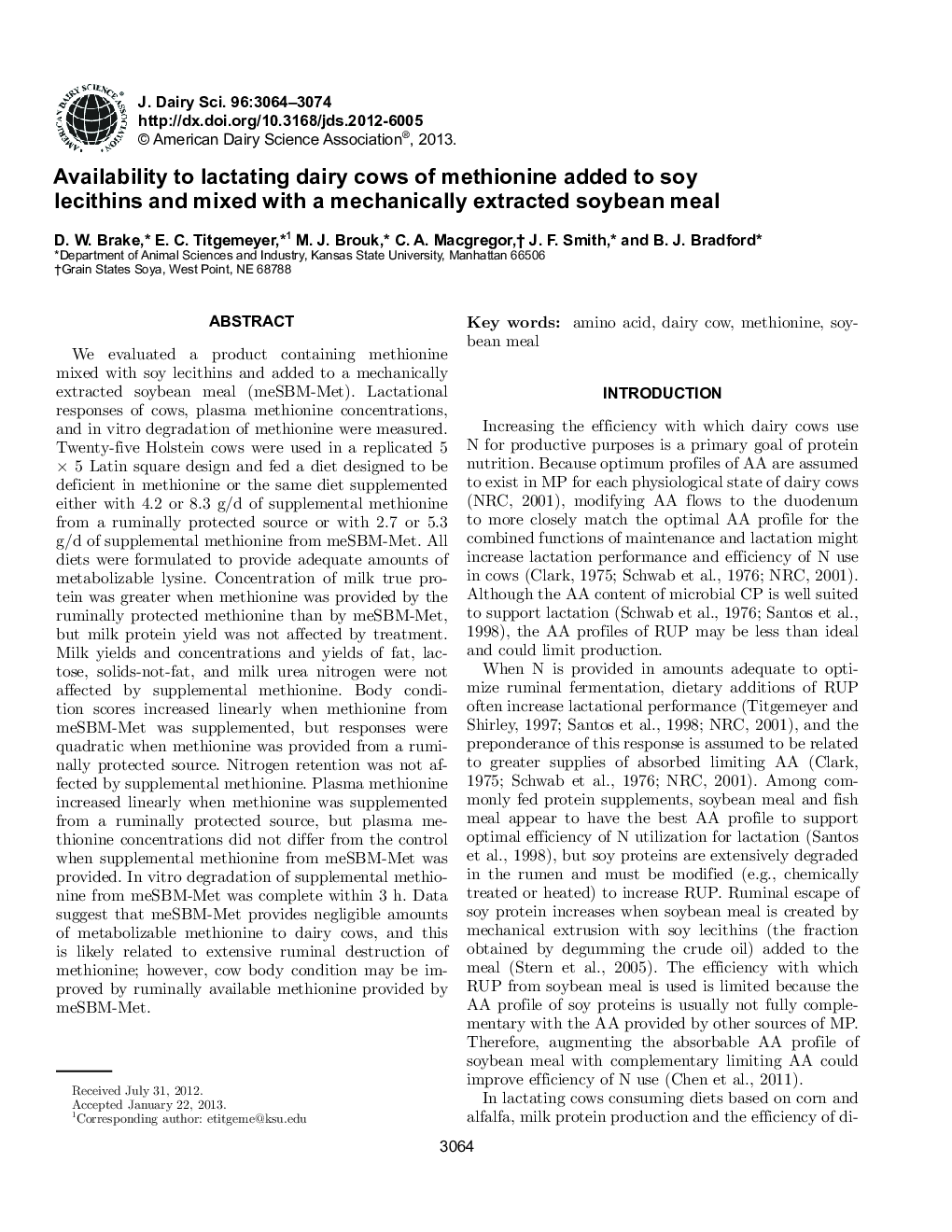| Article ID | Journal | Published Year | Pages | File Type |
|---|---|---|---|---|
| 10978426 | Journal of Dairy Science | 2013 | 11 Pages |
Abstract
We evaluated a product containing methionine mixed with soy lecithins and added to a mechanically extracted soybean meal (meSBM-Met). Lactational responses of cows, plasma methionine concentrations, and in vitro degradation of methionine were measured. Twenty-five Holstein cows were used in a replicated 5Â ÃÂ 5 Latin square design and fed a diet designed to be deficient in methionine or the same diet supplemented either with 4.2 or 8.3Â g/d of supplemental methionine from a ruminally protected source or with 2.7 or 5.3Â g/d of supplemental methionine from meSBM-Met. All diets were formulated to provide adequate amounts of metabolizable lysine. Concentration of milk true protein was greater when methionine was provided by the ruminally protected methionine than by meSBM-Met, but milk protein yield was not affected by treatment. Milk yields and concentrations and yields of fat, lactose, solids-not-fat, and milk urea nitrogen were not affected by supplemental methionine. Body condition scores increased linearly when methionine from meSBM-Met was supplemented, but responses were quadratic when methionine was provided from a ruminally protected source. Nitrogen retention was not affected by supplemental methionine. Plasma methionine increased linearly when methionine was supplemented from a ruminally protected source, but plasma methionine concentrations did not differ from the control when supplemental methionine from meSBM-Met was provided. In vitro degradation of supplemental methionine from meSBM-Met was complete within 3Â h. Data suggest that meSBM-Met provides negligible amounts of metabolizable methionine to dairy cows, and this is likely related to extensive ruminal destruction of methionine; however, cow body condition may be improved by ruminally available methionine provided by meSBM-Met.
Related Topics
Life Sciences
Agricultural and Biological Sciences
Animal Science and Zoology
Authors
D.W. Brake, E.C. Titgemeyer, M.J. Brouk, C.A. Macgregor, J.F. Smith, B.J. Bradford,
